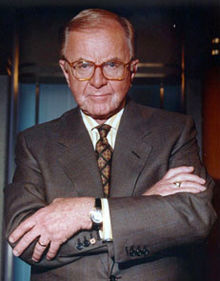 There have been a lot of concerns about the Summer games since they were awarded to Rio six years ago. But as I have seen in previous Olympic games, any issues about human rights, the environment, and the economy are put on the back burner once the cauldron is lit.
There have been a lot of concerns about the Summer games since they were awarded to Rio six years ago. But as I have seen in previous Olympic games, any issues about human rights, the environment, and the economy are put on the back burner once the cauldron is lit.
Penny Oleksiak made people forget about those concerns when the swimmer claimed Canada’s first medal at the Games. Then later won gold and finished with 4 medals. Andre De Grasse collected three medals at the Olympics: a bronze in 100 metres, silver in 200 metres, and anchored Canada to a bronze in the 4 by 100 metre men’s relay.
De Grasse’s success at his first Olympics were perhaps a surprise to no one. He won two gold medals at the recent Pan American Games in Toronto and was looking to make his mark in Rio. It was a tough task for the newest member of the Scarborough World Order to unseat Jamaica’s Usain Bolt. But De Grasse held his own proving he will be a force in future world track competitions.
On the other side, there is 16-year-old Toronto native Oleksiak. She was also a newcomer to the Olympics but, unlike De Grasse, she was not a household name, until now. Oleksiak’s performance in 4 swimming events earned her praise. Even rapper Drake chimed in to congratulate Oleksiak.
In total, Canada came home with 22 medals including 4 gold, placing 10th overall in the medal standings. Not all athletes ended up getting medals but nevertheless we were proud of their achievements. One in particular, Evan Dunfee, showed Canadians what we are made off after coming in 4th place in race walking, a decision that was appealed and later denied. He thought the Japanese runner (or should it be walker?) pushed him aside to pass him. And he did. But Dunfee to his credit handled the situation and the final result well.
Slowly but surely the focus of the Rio Olympics shifted from the social problems to the athletic performance. Not even American swimmer Ryan Lochte’s fishing story about an alleged armed robbery could spoil the spectacle and brilliance of the games. Do you remember the time the state-sponsored Russian doping scandal made headlines weeks before the start of the Rio Olympics? Or how about the Zika virus posing a threat to the games? Neither did I.
The games are what it is supposed to be: an arena to display great athleticism and sportsmanship. The best athletes in the world going head-to-head. And, for the most part, we saw that over the last two weeks.
Also see:
Canada has the Best Athletes… Period
Sports is Not a Platform for Activism
Lessons From the World Juniors

 I would also like to offer condolences to the family of Dr. John McLaughlin. Richard Nixon’s former speech writer passed away on Tuesday at the age of 89. McLaughlin started a TV show in 1982 that became a staple of hot political discussion and commentary. I started watching the McLaughlin Group in 1994. Occasionally, the panel would discuss sports topics like Derek Jeter’s controversial home run in the 1996 American League Championship Series where a kid named Jeffrey Maier leaned over the fence in right field at Yankee Stadium and caught the ball right over the head of Orioles’ outfielder Tony Tarasco. The McLaughlin Group was often imitated but will never be duplicated. RIP Dr. McLaughlin (1927-2016). Bye-bye.
I would also like to offer condolences to the family of Dr. John McLaughlin. Richard Nixon’s former speech writer passed away on Tuesday at the age of 89. McLaughlin started a TV show in 1982 that became a staple of hot political discussion and commentary. I started watching the McLaughlin Group in 1994. Occasionally, the panel would discuss sports topics like Derek Jeter’s controversial home run in the 1996 American League Championship Series where a kid named Jeffrey Maier leaned over the fence in right field at Yankee Stadium and caught the ball right over the head of Orioles’ outfielder Tony Tarasco. The McLaughlin Group was often imitated but will never be duplicated. RIP Dr. McLaughlin (1927-2016). Bye-bye.